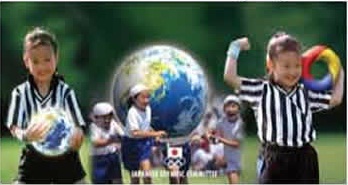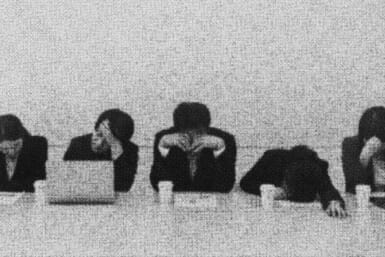The search for environmental awareness and action in Japanese sports
by Ulara Nakagawa
A BBC article has suggested that Britain’s favorite sport, football (soccer), is guilty of a serious crime: taking a “toll on the environment”.
Energy guzzling stadiums, fan and team vehicle emissions traveling to and from games, and the amount of consumption and waste produced at football events are all identified as factors contributing to this great offense.
However, there seems to be an emerging movement for change in the sports industry in the UK. Stadiums run initiatives to encourage fans to lower their energy consumption and waste expenditure at games and the city of Manchester has begun recycling football field rubbish and using it to make anything from footpaths to compost…even blinds and furniture. As for athletes, some have begun car-pooling to cut down on CO2 emissions. One very environmentally conscious goalkeeper, David James, has converted his car to run on rapeseed (canola) oil fuel and has set up a foundation to foster sustainable agriculture in Malawi.
So what about Japan? Is there anything being done here to reduce the negative effects of the sports industry on the environment? I’m yet to come across any blinds composed of recycled football field rubbish in Tokyo.
I begin my quest for answers with some quick interviews of several amateur and semi-pro level Japanese athletes. The first is with a 24-year-old Japanese baseball player who plays for a top national automobile manufacturer’s company league in Nagoya: “So what do you and your teammates think about the environment? And what sort of measures might you be taking as athletes to address ox acknowledge the issue?” “Uh, well…we don’t really think about that kinda thing.” “Really? Never?” “Well, not really. At least I don’t too much. And I’m pretty sure my teammates don’t either.”
I hang up the phone, slightly dismayed. It’s not as if I was expecting him and his team to be driving around in rapeseed oil-fueled vehicles, but the lack of awareness and apparent absence of thought on the environment is disappointing. My following interviews with an amateur judo athlete in Nara and jujitsu athlete in Tokyo have very similar outcomes. There does not seem to be any sort of activity, recognition, or even awareness of environmental issues from a Japanese athlete’s perspective to be found.
Then a friend who works for a Tokyo-based NPO group for social change points me to some links that change the direction of my inquiry. Clicking and scrolling through English and Japanese sports related websites, I find relevant information spanning the entire realm of sports (not just football). There is so much to read, I am suddenly over rather than underwhelmed. I decide to focus on Japanese athletes and closely related organizations that are promoting awareness and taking proactive measures for the environment:
For instance, Ryoko Tokono, a popular female Olympic beach volleyball player calls for more attention to be paid to the issue of global warming and CO2 emissions, and Japanese Olympic skier Nobu Naruse describes a strong effect that global warming is having on his sport, with cancellations due to lack of snow increasing. Olympic triathlete Hiroyuki Nishiuchi also notes that “Sometimes we must compete in polluted water. I see discarded plastic bottles and aluminum cans floating about, even fish dead from pollution. When we run on ground, sometimes our noses get black from air pollution and our eyes get so sore we must keep them closed.”
Japanese Pro tennis player Shuzo Matsuoka, 36, is also chairman of the board of the Japan based NPO Global Sports Alliance. He and Global Sports Alliance has so far collected and distributed about one million used tennis balls as part of an ecologically-friendly campaign.
Back to football, The J. League or Japan Professional Football League is the top professional football league in Japan. They are taking an active part in the Team Minus 6% (a government created national movement to take on Global Warming based on the Kyoto Protocol). Their participation includes cutting down on team vehicle emissions by reducing idling time, reusing and bringing their own drinking cups to practices and games, and promoting garbage separating and cup recycling.
Charged up with this new information on Japan, sports, and the environment, I decide to re-contact my interviewee athletes, just to share my newfound knowledge and perhaps if lucky, create sane kind of awareness. I start by dialing up the “I-dont-really-think-about-that-kinda-stuff” baseball player: “Hi. It’s me again. Did you know that Aodamo trees in Hokkaido are being used to make baseball bats? There is even a non-profit organization called the Aodamo Growth Association to cultivate trees for baseball bats using plant technology.” “Oh yeah! Well, see I’m a pitcher so I don’t really even touch baseball bats, but I’ve heard about that. I was also thinking about how we do all know about the issue of carbon emissions, because we work for a car company and we all really support Hybrid cars.”
I later talk to the judo athlete about the national Judo uniform recycling program that has so far seen 30,000 pieces sent off to 129 less advantaged countries. The jujitsu athlete tells me that he had started to think about jujitsu, its Brazilian roots, and how he wants the country that inspired his sport to keep its rainforests alive.
However, at this point of my quest to find environmental awareness and action in the Japanese sports world, I realize there is still much to be done and said. Not only by Japanese athletes, or athletes in general, but by all of us whether in the UK, or Japan, or Timbuktu. If the merits we are so drawn to in athletes and sports, such as dedication, determination, and spirit can be funneled into protecting and fighting for the environment, we should all get in uniform and start playing the game.
For further information on the topics discussed and more, there are some English versions of related websites:
Non-profit organization Global Sports Alliance aims to “enjoy sport in a healthy environment, and to secures healthy ecosystem for our future generations”: www.gsa.or.jp
Interesting article from the Nikkei Shimbun on the Sporting Goods Industry and Japan titled, “More Eco-friendly Sporting Goods Sold”: www.japanfs.org/en/pages/025029.html
2006 Report by the Sports and Environment Commission of the Japan Olympic Committee (Pg. 127 and onward are in English): www.joc.or.jp/eco/pdf/report200fiall.pdf









